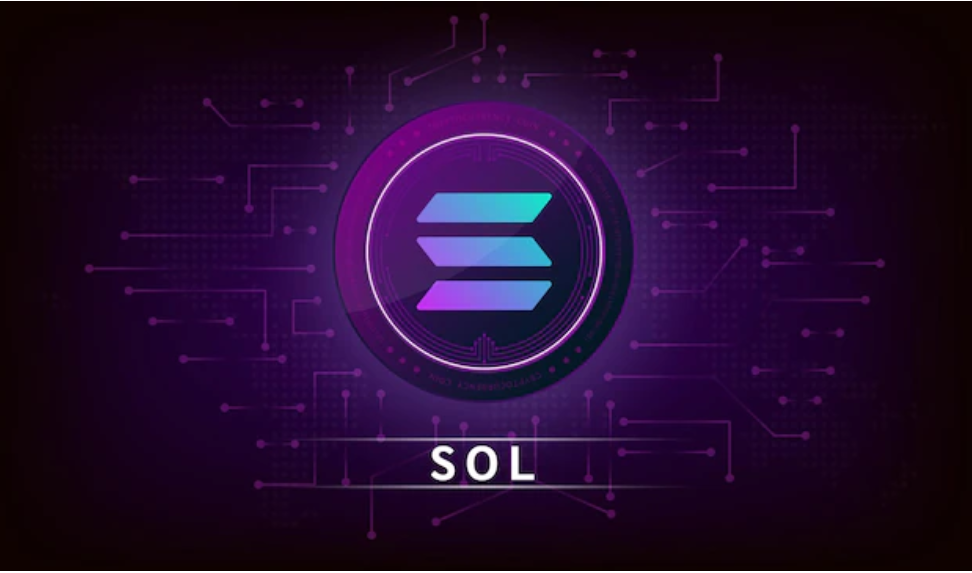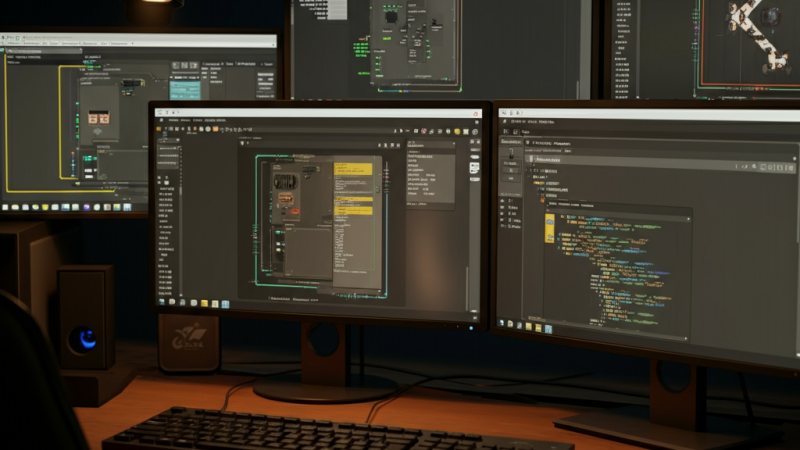A brief overview of Solana blockchain development

Over the past few years, Solana has been recognized as one of the most popular blockchain platforms compatible with global adoption. It is currently seen as a direct competitor of Ethereum, which can efficiently enable decentralized application development.
Solana is an open-source, decentralized fourth-generation public blockchain network that helps regulate peer-to-peer transactions. Solana’s ecosystem is based on proof-of-stake and proof-of-history consensus mechanisms. Its native currency is known as SOL. Solana is all about speed, with block times around 400 milliseconds. It is low-cost and ultra-fast, as well as censorship resistant.
Salient features of the Solana blockchain
Proof-of -history
Solana uses a combination of PoH (Proof-of-history) and PoS (Proof-of-stake) consensus mechanisms. PoS is responsible for the blockchain’s environmental friendliness, whereas PoH is responsible for the network’s higher efficiency and higher throughput rate. A transaction is processed instantly as soon as it enters the blockchain.
Tower BFT
Solana employs the Byzantine Fault Tolerance algorithm (BFT), which ensures that the whole system is protected in the event of a node failure. The BFT algorithm ensures that the Solana blockchain’s decentralized applications are never down.
Pipeline
The transaction processing unit is responsible for assigning a stream of inbound data to different hardware parts of the Solana network. Pipelining in Solana simplifies optimization and ensures that data is replicated across all nodes within the network.
Turbine
Block propagation protocol by Solana breaks down data into smaller packets that can be sent to the blockchain nodes. Turbine makes it easy for Solana to solve bandwidth issues and increase transaction processing speed.
Archiver
Archiver is a network of nodes that offloads data on Solana from validators. It utilizes a proof of replication model, allowing nodes to reproduce information without hardware requirements.
Sealevel
Sealevel is a parallel execution environment for smart contracts that allows Solana to scale horizontally across SSDs and GPUs. Because Solana is multi-threaded, token transactions are cost-effective.
Solana development workflows
Solana developers follow two distinct development processes: Programming (smart contract) and dApp development.
Programming development on Solana can be done in Rust and C, as well as C++. These programs can be built on-chain, deployed and run via the Solana Runtime, where they live forever. Anyone can use these programs by communicating with them via the JSON RPC or any SDK built on this API. Other on-chain programs can also use the JSON RPC API.
Most web2 and web3 developers are familiar with dApp development. This development is used to create applications that transmit transactions with instructions to on-chain programs. It closely resembles building web/mobile apps and interfacing with centralized APIs. JSON RPC API is the foundation of Solana app development, and this API allows you to interact directly with the blockchain. Solana Labs created a Solana-web3.js SDK that allows you to communicate with the blockchain and Solana programs like any other API. Many third-party SDKs have been developed on top of JSON RPC API, including Java, C# and Python. These SDKs can be accessed on the Solana Developers page.
Solana blockchain development technology stack covers the following:
- Rust
- Solana Tool suit
- Anchor framework
- Next JS
- Node JS
- Phantom
- React JS
- Web3
What services do the best Solana development company provide?
- Solana token development – Secure and fast tokenization of digital assets via SPL using an integrated blockchain network.
- Smart contracts development – Solana blockchain development makes it easy to create, automate and execute smart contracts quickly and affordably.
- dApps development – Solana allows you to create a decentralized enterprise application that is both highly customizable and affordable.
- NFT marketplace – Solana allows you to build a decentralized NFT marketplace that is secure, scalable and easy to use. This allows you to create a marketplace that can be customized to suit your needs.
- Smart contracts audit – Regular auditing reports make it easy to get your work done.
- DeFi application development – Create a DeFi application that is robust, easy to use, and cost-effective compared with the market.
- Blockchain games development – Create an NFT-based interactive gaming environment that offers Play-to-Earn and Earn-to-Play incentives.
- Web3 application development – To scale your business, create a simple-to-use web3-powered decentralized application. All can enjoy a trustless, permissionless environment.
Conclusion
Solana does not require you to be a validator, which removes all barriers to participation and reaps the rewards of the network. It is more complex as Solana developers need to code in Rust programming. Because of the complexity of Solana, you will have to pay more to hire a Solana developer from the best Solana development company. Developers and companies looking to hire Solana developers to implement decentralized solutions using this unique technology should also be aware that Solana is still in the Beta phase, and there is still a lot under way of Solana.






